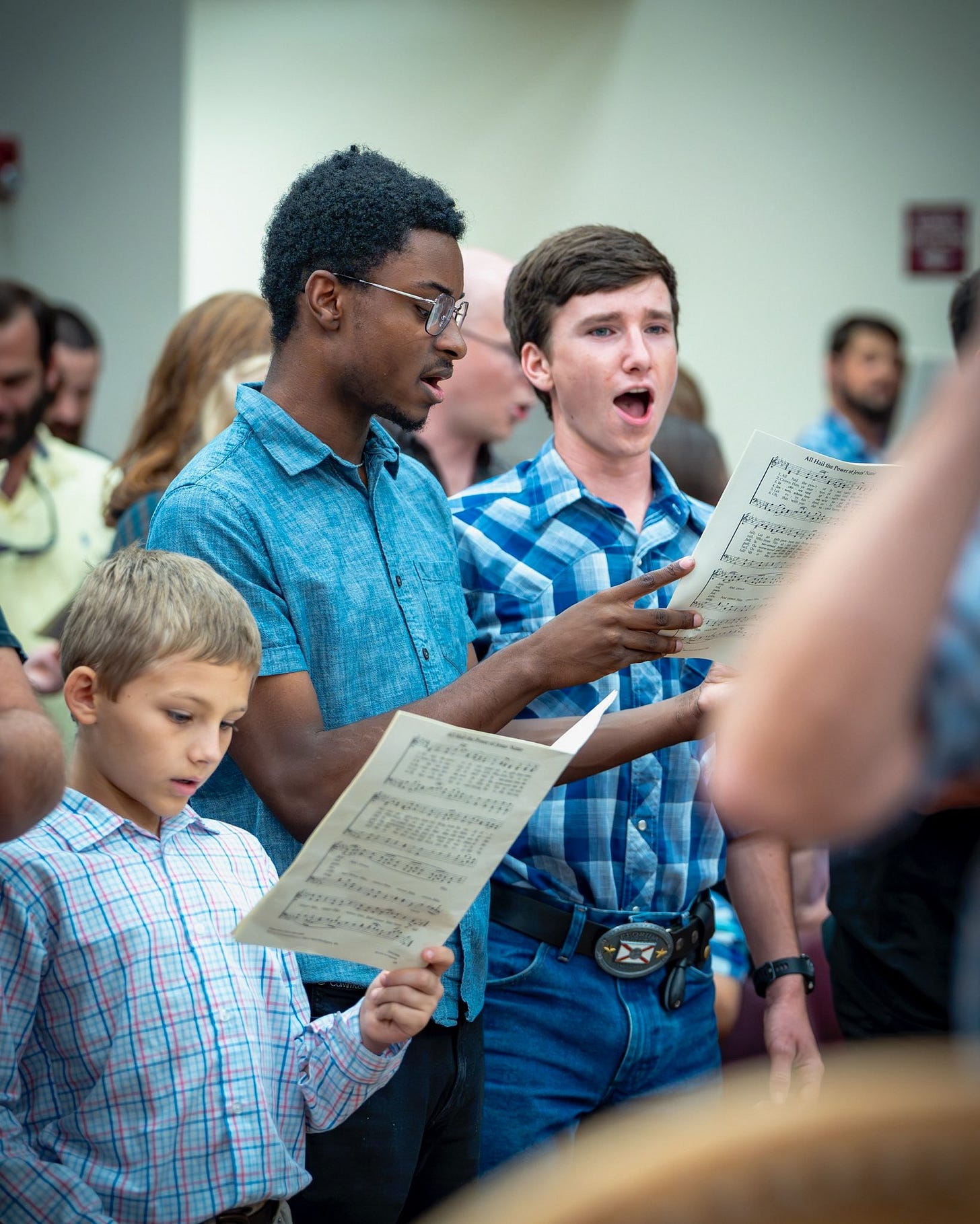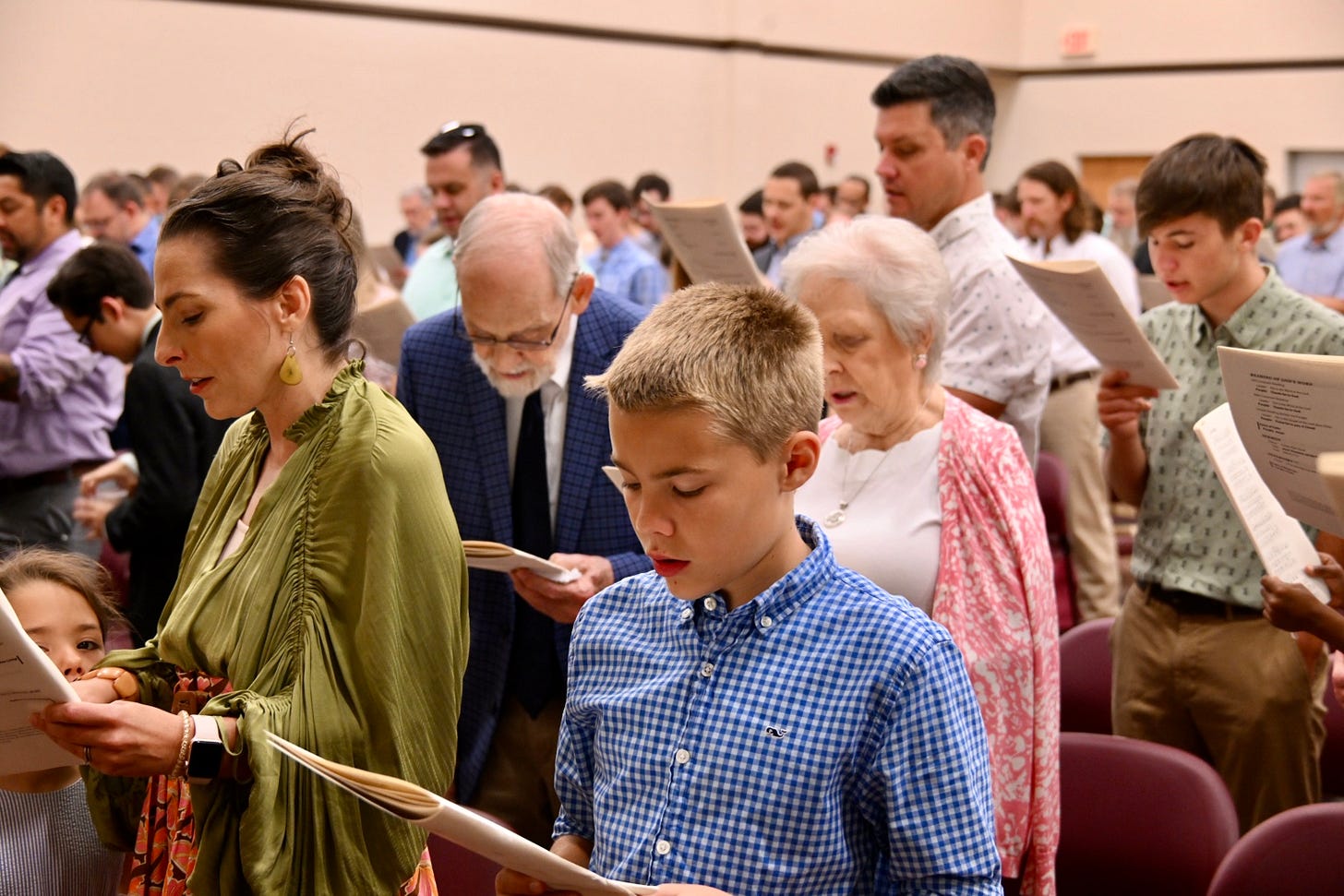Practical Steps to Training Your Children in Worship
While much of this can be learned during the week, the liturgy itself also offers opportunities to grow in this sacred practice. The rewards will be plentiful.
For those of us whose children’s voices are near unto us from the beginning to the end of the liturgy, we acknowledge that the process of worship is not all created equal. Over the years, people have raised essential questions regardings the dos and don’ts of children in worship. Still, in the end, the majority of them stemmed from a deep concern about practical issues, rather than particular biblical interpretation. I don’t think it takes long to convince people of the theological rationale, but it may be more challenging to persuade them of its practical blessings. But convincing them is only the first step. Their questions about the practical steps are always legitimate. Of course, there are exceptions, but we need to focus on the ordinary and objective imperatives of the Bible. On this Friday edition, I’d like to offer some practical wisdom for those who are open to keeping children in worship from the beginning to the end.
Children in the Worship Service
You shall rejoice before the Lord your God, you and your son and your daughter, your male servant and your female servant, the Levite who is within your gates, the stranger and the fatherless and the widow who are among you, at the place where the Lord your God chooses to make His name abide (Deuteronomy 16:11-12)
But Jesus called them to Him and said, “Let the little children come to Me, and do not forbid them; for of such is the kingdom of God.” (Luke 18:16-17)
One of the greatest joys for Christians is to come into the presence of God for worship together as families. As members of God’s covenant household, our children are both commanded and permitted to participate in worship with the community of the redeemed. Worship is not something that comes naturally, which means we must work hard to learn it well. Training our children to worship the Lord is one of the responsibilities of parents. We offer this as an aid to parents as they help their little ones under their charge to come into the presence of God with joy and celebration of His grace in their lives.
We need to be patient with one another, understanding that children are learning to participate with us in worship. For instance, we need to be willing to allow for a certain amount of noise and distraction when children are present. Parents are often aware when their little ones are being too loud or making it difficult for those around them to worship. In such cases, use your good judgment. If you need to, you may want to take the child out of the service for a time, but please bring them back in after they calm down. Worship offers us various opportunities to learn and train one another in virtuous habits. Although the process is never simple, we are beneficiaries of the blessings of perseverance.
Prepare Your Child for Worship
Try to come to worship with a relaxed and joyful attitude. Your children reflect your attitude as you come to worship. Avoid being rushed and tense before church. Take time on Saturday to prepare for the Lord’s Day, so that you can worship without undue care and concern. This entails ironing clothes, planning hospitality and fellowship meals, ensuring cars are fueled up, etc.
Help your children to think about their lives throughout the week. They should be taught to come to worship thankful for God’s blessings and eager to confess their sins and receive assurance of forgiveness from Him.
Teach and practice regular elements of the service, such as the hymns/psalms, the Lord’s Prayer, the Nicene Creed, and the Gloria Patri, at home together. Children love to participate in worship, especially in those parts they know and understand. If your church provides the music in the order of worship, make sure to bring copies home.
Allow time for your children to use the bathroom and get a drink before the worship service begins. There should be no ordinary reason for them to have to go more than once.
Help them get a copy of the order of worship and understand how to use it. Explain how they can be actively participating in worship. When they cannot read, follow the music along with your fingers. If they cannot read, encourage them to hum along.
Positively reinforce behavior by your attention to your child. If you have lots of little ones, you may want to have single adults or older teenagers sit with you to help. This will emphasize that all believers are in the Lord’s family.
Help Your Child During Worship
Encourage your child to participate with the congregation in standing, sitting, reading, praying, and confessing, and responding appropriately to hymns and Scriptural readings. These are bodily rituals that will form them.
Encourage your children to be attentive to some aspects of the sermon. Begin habits of conversation about the sermon on your way back home, and make it a regular topic of discussion at the dinner table. Be specific in your questions. For instance, “Son, what did the pastor say about the difference between wisdom and folly?”
Help your child participate by ensuring he has his own contribution, no matter how small. This helps him understand that he must give not only his tithes and offerings to the Lord but also himself. When they are small, provide them with some cash to take to the tithing box.
During the Lord’s Supper, help your children joyfully participate in the passing of the peace and remind them of the promises Jesus makes to the little children, for unto such belong the kingdom of heaven.
These are a few practical ways to train your children in worship. While much of this can be learned during the week, the liturgy itself also offers opportunities to grow in this sacred practice. The rewards will be plentiful.





Thank you Uri, for another helpful and instructive article. I think I told you that I use many in our weekly church bulletins. Thanks for your encouragement and teaching!
Barbara Kern, CTKC